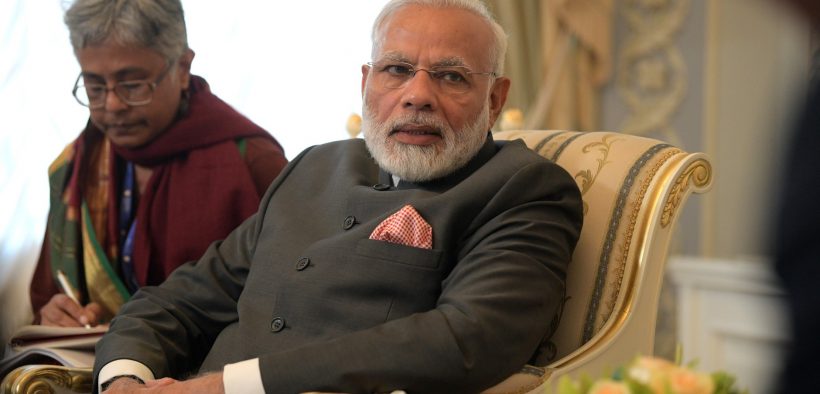Modi’s Kashmir Power Grab Leads to State Suppression and Standoff

The longstanding dispute between India and Pakistan over Kashmir has reached a new fever-pitch in recent weeks.
In May of this year, Indian Narendra Modi won his reelection bid for prime minister, and now his sweeping victory has emboldened the controversial figure to claim the disputed, semi-autonomous territories of Jammu and Kashmir.
Modi is a controversial figure with a questionable past. Robert McCaw, Director of Government Affairs Department at Council on American-Islamic Relations (CAIR), criticized Prime Minister Modi in an interview with Citizen Truth earlier in the year due to his role in the 2002 Gujarat riots, which left between an estimated 1,000 to 2,000 dead, most estimated to have been Muslim. Human Rights Watch also commented on the riots in February 2012 and criticized Modi’s handling of the riots.
Now recent actions of the Modi administration in Kashmir have caused concern for human rights organizations across the nation, as many fear his far-right-wing anti-Muslim Hindutva (Hindu Nationalist) ideology is beginning a dangerous power grab.
The Situation in Kashmir
Shortly after a recent parliamentary vote in India to remove the special autonomy status of Jammu and Kashmir, Human Rights Watch (HRW) published a report detailing the worsening of humans rights within the areas, including local leaders being placed under arrest, severing phone communications and disconnecting the internet.
“There are reports of worried families unable to contact loved ones and a lack of proper access to medical services. Some journalists have described mass protests which security forces quashed with tear gas and shotgun pellets, something the government denies. There are unconfirmed reports of numerous ongoing arrests, including of activists,” detailed HRW.
Kashmir is a predominantly Muslim area, split by India and Pakistan, which both countries claim as their own. The recent actions of India have drawn the ire of Pakistan, claiming such to be in violation of international law. Pakistan has made appeals to the United Nations Security Council while scolding the Hindu nationalist government of India.
Last week, the Associated Press (AP) obtained a letter from the Security Council from Pakistan Foreign Minister Shah Mahmood Qureshi, which detailed his views of the Hindu-nationalist ideology, which has goals of changing Kashmir to a Hindu-majority region. He also detailed the actions of India as a direct attempt to “willfully undermine the internationally recognized disputed status of Jammu and Kashmir.”
Indian soldiers were blocking Muslims in Kashmir from going to mosques for several days during the ongoing standoff. Lawfare details why the move by Modi’s Bharatiya Janata Party (BJP) isn’t surprising, but had some tactical elements that were not expected.
First, it’s notable that this did not happen during Prime Minister Narendra Modi’s first term from 2014 to 2019. After all, abrogating Article 370 of the Indian Constitution, which conferred upon Jammu and Kashmir its special status, has been a core promise inscribed in the party’s manifesto. And the BJP has a tendency to follow through on manifesto promises even when they are controversial: The party previously vowed to confer nuclear status upon India and did so when it assumed power in May 1998. The second perhaps surprising element was that it was so easy to do. Rather than seeking a consensus-based approach in Srinagar and Delhi, the government simply eviscerated most of the provisions of Article 370.
Latest Updates on Kashmir
“Authorities in Indian-administered Kashmir have reimposed restrictions on public movement after people took to the streets to protest against Delhi’s decision to suspend the disputed region’s autonomous status,” reported the Independent (U.K.) on Monday. “The country’s army ordered Kashmiris to return to their homes on Sunday and announced the reimposition of section 144, which bans assemblies of more than four people.”
“India is trying to paint a normal picture of a restive region, but we have to rise to protest the assault on our identity, culture, faith and land,” said Shahnawaz Hussain to the Independent. Hussain lives in Srinagar, Kashmir’s largest city.
Kashmir has seen protests since India revoked most of the Article 370 provisions. After hostilities between India and Pakistan earlier in the year, it’s unlikely the situation in Kashmir will calm in the near future, especially with Modi having a firm grip on all Indian power structures.
















Modi identifies with Krishna, and the attendant “duties as warrior and prince”. The power grab has an outstanding Hindu-centric precedent in modern Indian history; it’s called “Operation Polo” (q.v.).
Thanks for the article on the plight of Kashmiris. We hope Kashmir will be a free country one day.